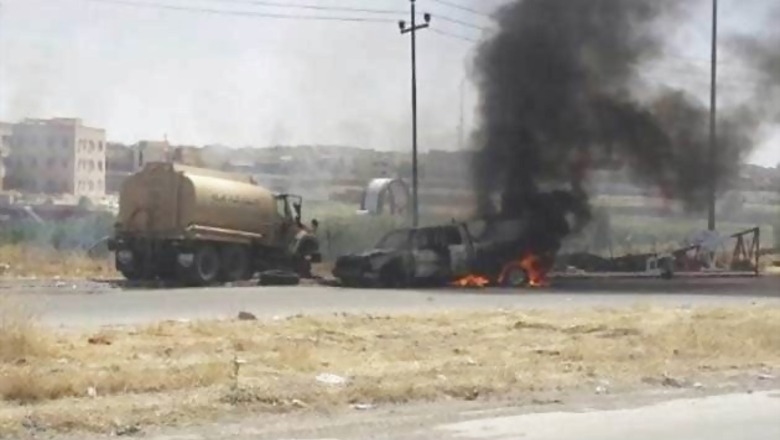
views
Washington: The US has said pursuing an "inclusive political agenda" is critical to Iraq's success, as it prepared to send the first batch of an advisory mission to Baghdad to help the Iraqi security forces against advancing Islamist militants.
"Pursuing an inclusive political agenda is critical to the success of that country, and it's critical to demonstrating to all of the people in Iraq that they have an interest in that country's prosperity and in that country's future," White House Press Deputy Secretary Josh Earnest told reporters.
"So we're going to continue to support the Iraqi people and support the Iraqi government as they consider pursuing a diplomatic or political agenda along these lines," he said in response to a question.
In view of the threat posed by Islamist militants, Earnest said the US has increased support for Iraqi security forces.
"There has been an enduring military-to-military relationship between the United States and Iraq. And we're going to ramp up that support through training, through the provision of equipment and in other ways," he said.
US President Barack Obama had announced on Thursday to send 300 personnel for an advisory mission to Iraq.
"The first set of teams that will be going in will be largely assessment teams," Pentagon Press Secretary Rear Admiral John Kirby told reporters at a separate news conference.
"They're going to be doing three things. They're going be assessing the state, the cohesiveness and capability of the Iraqi security forces, they're going to be assessing the situation on the ground for us to help us gain more intelligence and more information about what the Islamic State in Iraq and the Levant (ISIL) is doing and how they're doing it, and then the third thing is to assess the feasibility and the future potential for follow-on advisory teams," Kirby said.
However, he refrained from giving details of the departure of the advisory mission.
Kirby asserted that this is not a combat mission.
"This is not a combat mission. These personnel are going to be doing assessments and eventually helping us with advisory missions and helping gather intelligence. That's just the way it is. It is not a combat mission," he said.
At present there are the less than 200 American personnel already assigned to the Office of Security Cooperation in Iraq at its Baghdad Embassy.
The US has maintained that basic level of staffing since the combat mission ended in 2011.
"Since then over the last weekend we brought in another 170 to assist with static security requirements at the embassy and associated facilities. That's the total right now. So it's roughly 350 to 370, something like that," he said.
Earnest said there is strong concern about what's happening in Iraq.
"There's also concern that's been expressed by countries who worked closely with the United States over the years in Iraq to try to, again, stabilise the security situation, give the Iraqi people the opportunity to determine their own future. So there are a lot of people who are concerned about this," he said.



















Comments
0 comment